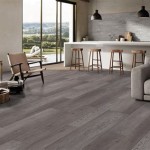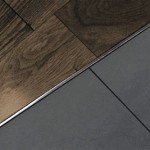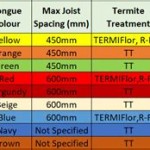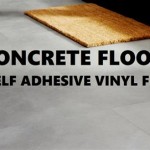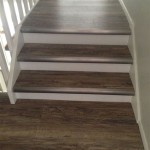Inexpensive Flooring Ideas For Basements
Basements often present unique challenges for flooring due to moisture issues and potential flooding. Choosing budget-friendly flooring that can withstand these conditions is crucial. Fortunately, several affordable options exist that offer both durability and aesthetic appeal.
Concrete Flooring Options
Concrete offers a readily available and cost-effective base for basement flooring. Several techniques can enhance its appearance and functionality while remaining budget-friendly.
*
Painted Concrete:
A simple coat of concrete paint can dramatically transform a dull basement floor. Epoxy-based paints are particularly suitable for basements due to their moisture resistance and durability. *Stained Concrete:
Acid staining reacts chemically with the concrete, creating a mottled, variegated effect. This offers a more unique look than paint and is relatively inexpensive. *Concrete Sealers:
Applying a concrete sealer protects the floor from moisture, stains, and wear. It’s essential for basements prone to dampness and can be used over painted or stained concrete.Vinyl Flooring: Resilient and Affordable
Vinyl flooring is a popular choice for basements due to its affordability, water resistance, and ease of installation. Various types of vinyl flooring cater to different budgets and preferences.
*
Sheet Vinyl:
Sheet vinyl comes in large rolls, minimizing seams and reducing the risk of moisture penetration. It's a budget-friendly option offering good water resistance. *Vinyl Tiles:
Vinyl tiles offer versatility in design and are relatively easy to install. Damaged tiles can be easily replaced without needing to redo the entire floor. *Vinyl Plank Flooring (LVP):
LVP mimics the look of hardwood flooring at a fraction of the cost. It's water-resistant and durable, making it suitable for basement installations.Laminate Flooring: A Budget-Friendly Wood Look
Laminate flooring provides the aesthetic of hardwood without the high price tag. While not entirely waterproof, certain types of laminate are more moisture-resistant than others and can be suitable for basements with proper underlayment.
*
Moisture-Resistant Laminate:
Look for laminate specifically designed for moisture-prone areas. These often feature a water-resistant core and tighter locking mechanisms. *Underlayment for Laminate:
Using a moisture barrier underlayment is crucial for laminate flooring in basements. This helps protect the flooring from moisture seeping up from the concrete subfloor.Carpet Tiles: Modular and Replaceable
Carpet tiles offer a soft, comfortable flooring option for basements. Their modular nature allows for easy installation and replacement of individual tiles if damaged.
*
Water-Resistant Carpet Tiles:
Opt for carpet tiles made with water-resistant materials like polypropylene or solution-dyed nylon. *Indoor/Outdoor Carpet Tiles:
Designed for both indoor and outdoor use, these tiles are highly durable and can withstand moisture.Rubber Flooring: Durable and Water-Resistant
Rubber flooring is a highly durable and water-resistant option, making it ideal for basements prone to moisture or flooding. It's also comfortable underfoot and offers good insulation.
*
Rubber Tiles or Rolls:
Rubber flooring comes in tiles or rolls, allowing for flexible installation options. *Recycled Rubber Flooring:
Eco-conscious homeowners can choose flooring made from recycled rubber, offering a sustainable and budget-friendly option.Epoxy Flooring: Seamless and Durable
Epoxy flooring creates a seamless, waterproof surface ideal for basements. While slightly more expensive than some other options, its durability and resistance to moisture and chemicals make it a worthwhile investment.
*
DIY Epoxy Kits:
Epoxy kits are available for homeowners who prefer a DIY approach, potentially saving on installation costs. *Professional Installation:
For complex designs or larger areas, professional installation is recommended for optimal results.Considerations for Basement Flooring
Before making a decision, carefully consider these factors specific to basement environments:
*
Moisture Levels:
Assess the basement's humidity and potential for flooding to choose a flooring material that can withstand these conditions. *Subfloor Preparation:
Proper subfloor preparation is crucial for any flooring installation, especially in basements. Ensure the concrete subfloor is level, clean, and free of cracks. *Insulation:
Consider adding an underlayment with insulating properties to improve comfort and energy efficiency. *Budget:
Set a realistic budget and explore options within that range, considering both material and installation costs.Evaluating Flooring Options
Choosing the right flooring for a basement involves balancing cost, durability, and aesthetic preferences. Carefully evaluate each option based on these criteria:
*
Cost of Materials:
Compare the price per square foot of different flooring materials. *Installation Costs:
Factor in the cost of installation, whether DIY or professional. *Durability and Maintenance:
Consider the flooring's resistance to moisture, wear, and tear, as well as its maintenance requirements. *Aesthetics:
Choose a flooring style and color that complements the basement's design and intended use.
Inexpensive Basement Flooring Options Rubberflooring4u

4 Of The Best Options For Basement Flooring In Your Home Reallyfloors America S Est Hardwood

6 Inspiring Ideas For Basement Flooring In Portland

Best Budget Basement Flooring Ideas

Unfinished Basement Ideas On A Budget Catholic Home

The Best Flooring Options For Your Basement From Forest Llc

15 Diy Basement Flooring Ideas Affordable Options For Basements

Best Basement Flooring Options Forbes Home
.jpg?strip=all)
5 Of The Most Durable Basement Flooring Options

What Are The Best Flooring For Basement In Homes
See Also



